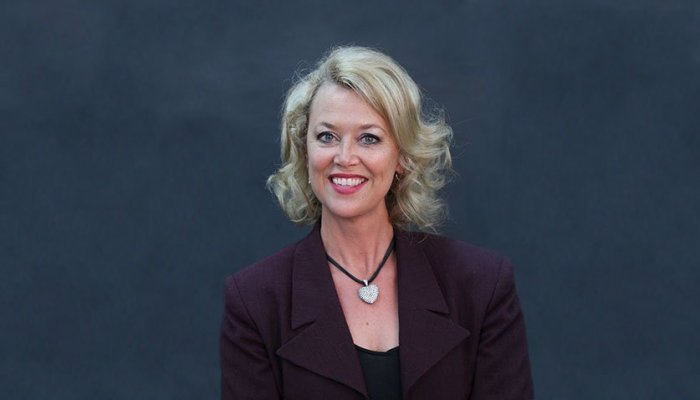In 1881, when industrialist, Joseph Wharton, made a handsome donation of US$100,000 to create the Wharton School of Finance and Economy, a career in business was looked down on by educators as a money-grubbing affair. This disdain was, in part, what drove Wharton to support the creation of a new college education in business, as biographer, William Ross Yates, relates in Joseph Wharton: Quaker Industrial Pioneer.
Wharton’s endowment, equivalent to around US$2.6 million in today’s money, aimed to create an educational package different to anything in existence. Yates explains, “Training by apprenticeship was slow, incomplete, and inefficient. Formal education in the classics was unsuitable. The leaders of tomorrow would need a knowledge of the sciences of society…of business law, and advanced techniques of banking, bookkeeping, and related skills.”
The result was a highly practical qualification that imparted ideas and backed these up with vocational training. But this all changed following the Second World War when the Carnegie Corporation and Ford Foundations released a damming report into the state of business schools in the United States. Criticisms included a ‘lack of theoretical research’ and ‘unintellectual curriculum’, as well as ‘untrained faculty’. This report, explains Dr. Carter Daniel in his book, MBA: The First Century, forced business schools down a narrow and overly theoretical path.
This approach flourished over the years, with business schools burgeoning and graduate numbers soaring as corporations and individuals extracted value. But the pendulum had begun to swing, and by the 2000s, criticism was being levied against business schools for being too theoretical and cognitive, explains Alison Reid, director of Personal and Applied Learning (PAL) at GIBS. With the changing face of business towards a stronger ethical and socially responsible approach, along with globalisation and digitisation disruption, pressure began to mount on business schools to change by giving greater weight to developing practical, holistic skills and capabilities.
Evolution deferred
In a 2020 article published in The International Journal of Management Education, Reid, Jonathan Cook and Professor Caren Brenda Scheepers of GIBS, and Conrad Viedge from the University of Johannesburg, projected a ‘third era’ for business schools might lie ahead. “The question is whether it will remain in the academic quadrant, regress to the practical, but academically light quadrant, abandoned in the 1950s, or move forward to the ideal of academic rigour supporting optimal management performance, with students emerging with interpersonal, ethical and critical thinking skills,” they wrote.
In the figure reproduced below, the authors illustrate that another trend is the move towards ‘being’, or the mindset of learners.
The journal article goes on to make a case for coaching, be it of the one-on-one or group variety, to help develop essential interpersonal ‘soft’ skills, build critical awareness of ethical behaviour, managing human capital, creativity and innovation. In addition, explains Reid, coaching is positioned as a relevant management development tool to bridge the gap between classroom knowledge and practical application in the workplace.
GIBS is not alone in this drive. In recent years, renowned business schools worldwide, from Europe’s INSEAD and IMD to Ivey in Canada and Hult Ashridge in the UK, have focused time, attention and resources on developing coaching capabilities.
In 2019, market research firm, Carrington Crisp, conducted a benchmarking study of GIBS’ executive coaching and facilitation functions offered through the PAL department. Business schools selected for comparison include the institutions mentioned above, as well as big names like Stanford, the University of Chicago Booth School of Business and the University of Michigan’s Ross School of business, Cranfield School of Management and Cass Business School in the UK, and IE Business School in Spain.
The researchers came to the following conclusion: “Overall, it is clear that GIBS’ coaching and facilitation offering stands up to, and in many ways exceeds, the provision at a number of the top schools globally – but also that inspiration can be taken from others in what is a dynamic and fast-evolving marketplace.” Of the 10 institutions studied, only six had stand-alone coaching and, of them, Hult Ashridge and Ivey were regarded as having the most comprehensive coaching packages.
There are several reasons why some business schools are behind the curve on incorporating coaching into their offerings, believes Reid. “Having aligned themselves strongly with academia, it’s harder for many business schools to blend innovations with traditional teaching. Fortunately, we have already been doing this for much longer than most, so while schools have generally been slow to respond, GIBS has not. Having experimented with the offering early, we have built a lot of experience and a solid track record in delivering value.”
How does it work?
Reid explains that GIBS began using executive coaching, group/team coaching and action learning coaching within corporate education programmes as a management development approach. “We’ve found that if you combine coaching and teaching, you get optimal results in your management education programme,” she explains. Managers learn best practise principles from a highly qualified teacher and can also personalise that knowledge to make the (sometimes hard) internal changes necessary to apply the principles within their own context. At each step of the way, they are guided by a professional coach.
“It’s about personal agency and change, but it’s also about organisational alignment in a way that optimises the impact of a learning process,” says Reid. Coaches also offer perspectives that consider the bigger picture or larger societal impact of decisions.
The coaching process holds both managers and companies to account, guiding executives through their own internal barriers and overly busy diaries, as well as any organisational resistance they might encounter. Organisations, too, are finding value in combining teaching offerings and stand-alone executive coaching to support strategic leadership development plans.
Measuring impact
In 2020, GIBS research associate, Dr. Hannah Botsis, conducted an impact assessment examining the effectiveness of coaching at GIBS. The report yielded five prominent themes: personal insight; the development of process capabilities and tools; team impact and cohesion; personal career impact; and leadership development and vulnerability.
Feedback received included:
“The session took me out of my comfort zone.”
“Storytelling was quite meaningful to me. It helped me create human connections with my colleagues.”
“Coaching is a critical skill and practice. Done right, it can yield favourable results to drive team cohesiveness and high performance. Very engaging and good insight on how to listen to others.”
“I have been very fortunate to receive a promotion... I really appreciate the work we did last year since this is really helping me. I think it was absolutely essential for me to understand the different components of my life, my personal priorities and what is important before I made this transition.”
“The coaching helped to channel in on some of the questions I had around developing myself – leadership, specifically – and also taking my role to the next level.”
Based on her analysis, Botsis concluded: “While there is always room for improvement…it is notable that the overwhelming majority of responses were positive… There is both a business and pedagogical imperative to honing ‘softer’ skills concerned with identity, authenticity, and reflexivity issues. GIBS’ track-record in this regard is commendable and offers a comprehensive suite of processes tailored to individual and organisational needs.”
Not only does ongoing research of this nature help Reid and the PAL team to constantly adjust and refine their offering to address the needs of business, but as this brand of holistic and human-centred learning takes centre stage globally, it is clear that GIBS’ early-mover advantage will prove critical.
“Our core intention was always to develop managers and leaders holistically and practically,” says Reid. “But our approaches have expanded and adapted over the years, in response to the needs of our clients and students.”
Looking to the immediate future, GIBS hopes to leverage this unique proposition to keep adding value to clients, says Reid. “We don’t just have a powerful corporate education offering underpinned by academic rigour. We also have a unique focus on the personalised, practical change at mindset and behaviour level that creates optimal and tangible impact for an organisation.”
The history of coaching at GIBS
GIBS started its executive coaching and programme coaching offering around 2005 in response to global criticisms that business schools, in general, were too impersonal and lacking practicality.
Founding Dean, Professor Nick Binedell, as well as Jonathan Cook and professors Karl Hofmeyr and Dave Beatty, all leadership experts, drove the process to create what Cook termed a new ‘professional faculty’ of experts to complement the traditional faculty and allow business schools to respond to the clear need for personal development, without losing the school’s disciplinary depth. Alison Reid was brought on board in 2007.
Looking back, Reid remembers that building a level of coaching into academic programmes had already become more common. “But we wanted to do more. We began designing and running public short course programmes that were largely self-assessment and self-development processes for managers instead of traditional courses. These courses were designed for different levels of management, and the focus was on identifying where each individual manager was strong or weak and what they needed to develop. It was quite a departure,” she recalls. “Part of the process was developing the various self-development methodologies and finding the best professionally qualified faculty to deliver them.”
As the market began to recognise the value of an approach that developed managers according to their individual needs and gaps, the courses became increasingly popular, especially on customised corporate programmes.
In time, Reid began to explore the opportunity to take the personalised learning capabilities built directly to the market. The PAL department began running training programmes on becoming a coach, facilitator or mentor, and also coaching directly into businesses. Corporate clients could then leverage the GIBS offering across the various levels of their organisation, from leadership coaching for their executives to building ‘manager as coach’ capabilities internally across their management levels or using coaching to embed and apply learning from classroom programmes.
Currently, GIBS has around 80 coaching faculty across various professional categories who hold about 40 assessment licences and accreditations for specific coaching and assessment tools.
KEY TAKEAWAYS
- Business schools globally are working to find the right balance between theory-based learning and the practical, real-world application of knowledge.
- The focus of management development is shifting to the holistic development of leaders, looking beyond an exclusively cognitive focus and evolving to incorporate the social and psychological development of the whole person.
- Coaching, be it individual or group, is well-placed to fill the traditional business school curricula gaps.
- Since around 2005, GIBS has been developing an extensive coaching offering as part of its executive education programmes – this puts GIBS at the forefront of this important evolution.






